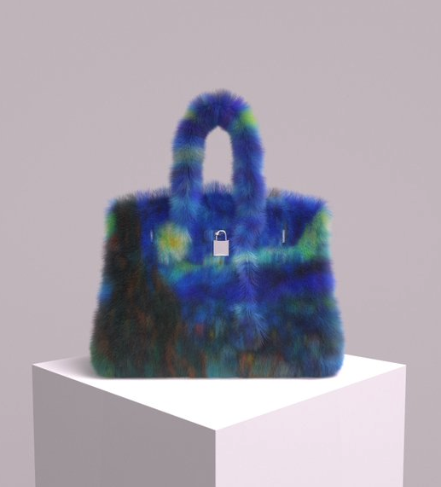It was just over one year ago when we first highlighted the story of fashion house Hermès opening a lawsuit up against NFT creator Mason Rothschild. The story has come full circle as the lawsuit comes to a close on Wednesday, with jurors coming to a ruling in favor of the global fashion brand.
The ruling will undoubtedly serve as a pillar judgment in how NFT lawsuits – and potentially legislation – are evaluated in the years ahead.
Hermès And The MetaBirkin DebateRewind to the simpler times of January 2022. Rothschild’s NFT project, MetaBirkins, was just a couple months into the making following a successful mint. But by mid-January last year, Hermès had filed a cease and desist, followed by a 47-page court filing against Rothschild and his NFT collection. Hermès argued that the collection used too much of the brand’s reputable iconography and likeness from their iconic Birkin bags. Rothschild was not pleased with the brand’s response to his collection, releasing copies of the cease and desist letters to the public last year and opining on social media around his disdain.
Hermès’ Birkin bags are a staple in high fashion. They are notoriously expensive and hard to acquire, and even on reputable resellers like TheRealReal, you won’t find one of these bags for less than $5K – with some going into strong six figures. It’s no surprise to see this brand go on an all-out legal offense when it comes to protecting any inkling of a potential IP violation. However, the precedent set this week could be a hindrance to NFT growth if we’re not evaluating art NFTs in the same purview as other mediums of artistic expression.

While Rothschild described his utilization of Hermès’ likeness as fair use, comparing it to the iconic Andy Warhol ‘Campbell Soup Cans’, jurors were not receptive. The nine-person jury found the brand to be well within their rights to be awarded damages, which totaled roughly $130,000, and concluded that Rothschild’s work did not fall under protected free speech rights entitled by the First Amendment.
With an increasing amount of brands across practically any and every consumer category entering the NFT and web3 space, this stands to be another challenging test for artists looking to push the fold of art inclusive of IP.
The jury essentially concluded that NFTs were more commodities than art, and while that may be true at times, we’d disagree with that assessment in this circumstance (and many others). Chalk it up to another ‘L’ for the web3 space as a result of the next-level degree of nuance and detail involved in the space. Simply put, it’s just not that simple.
Rothschild released a multi-tweet statement on Twitter on Wednesday, expressing his disappointment in the conclusion of the legal battle and it’s implications for art moving forward:
Take nine people off the street right now and ask them to tell you what art is but the kicker is whatever they say will now become the undisputed truth. That’s what happened today.
A multibillion dollar luxury fashion house who says they “care” about art and artists but..
— Mason Rothschild
(@MasonRothschild) February 8, 2023
![]()











